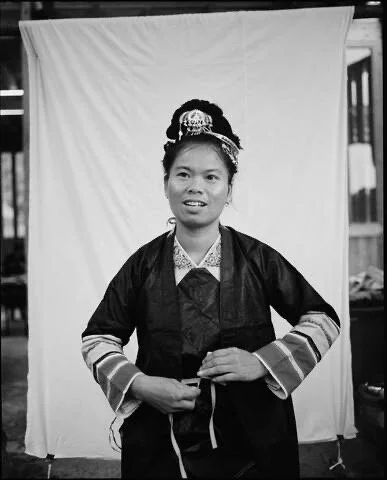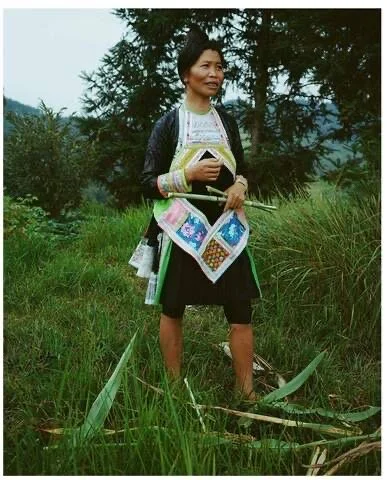It Takes A Village: Angel Chang & Her Commitment to Sustainability
With the rise of performative activism on many of our timelines, it has become difficult to differentiate between clothing brands that genuinely strive to maintain a sustainable agenda and those that are just hopping on the bandwagon. Designer Angel Chang fully embodies what it means to care for the earth, evident through her electricity-free brand’s commitment to sustainability, cultural knowledge, preservation, and strong will to empower the younger generation.
To find a brand that discloses its entire supply chain from beginning to end is extremely difficult, especially with the amount of outsourcing done in today’s world. Angel is one of the few designers that demonstrate fully sustainable practices, beginning with the sourcing of fabrics. Every single piece of clothing in her collection is made by Chinese ethnic minority artisans in Guizhou Province. For these Indigenous peoples, clothing is their history. Practices are passed down from mother to daughter, yet with the increased industrialization of China, the younger generations are being forced to look to the city for work in hopes of increased pay. Unfortunately, the knowledge and skills are being lost along the way, something that Angel has desperately tried to preserve.
In 2011, Angel moved from NYC to Guizhou province to begin her work with the artisans. She continuously seeks out new ways to manufacture her designs, looking towards the Indigenous women and daughters for techniques. Since then, she has been featured in Vogue, Elle, PAPER, and the NY Times. In addition, she studied at Columbia and Barnard and had her collection featured by The Museum at FIT.
Her process begins with growing the materials needed to make the fabric. This is done on the artisan's land, where they grow cotton, flax, and hemp, to name a few crops. They also use materials from the surrounding forests and mountains, ensuring only to take what they need. This promise is held true due to the prominent religion in southwest China where everything has spirit, utilizing its energy for healing purposes. Furthermore, since all the material is raw and hand-picked from nature, even the wastewater poses no threat to the environment. Sourcing is done within a 30-mile radius of the local village, and each piece takes anywhere from 6 months to a year to produce.
Growing the plant takes about four months, spinning it into yarn takes about two, and the final sewing process is the shortest, spanning nearly three days. Compared to fast fashion, a piece of clothing may take as little as a week to design and manufacture, only to be discarded a month later after it is no longer “on-trend.” Angel primarily dyes with indigo, which is anti-microbial and has a scent that naturally repels mosquitos. In addition, her entire process is in line with nature’s seasons rather than the fashion season. As a result, her designs are timeless and can be worn all year round for generations.
Angel’s social responsibility is very uncommon in the brands that are most heard of nowadays. There’s a reason fast fashion is the way it is; it caters to the Western world and the consumption rates that have reached astronomically high levels. Designs go in and out of trend faster than the brands can keep up with, resulting in the fashion industry being one of the most significant contributions to global emissions. To prevent destruction to the earth, designers should positively look towards artists like Angel, who are trying to alter fashion’s impact for future generations.
“When we make profit as a primary objective, the repercussions are devastating. We’re destroying our planet, we’re exploiting people, we’re losing our cultural knowledge and we’re not even making great products, in some cases we’re making poisonous products.” -Cameron Russell
To watch Angel’s TED Talk: https://www.ted.com/talks/angel_chang_how_ancient_textiles_can_help_the_future#t-374687
To listen to Angel’s Podcast & shop her collection: https://angelchang.com/





